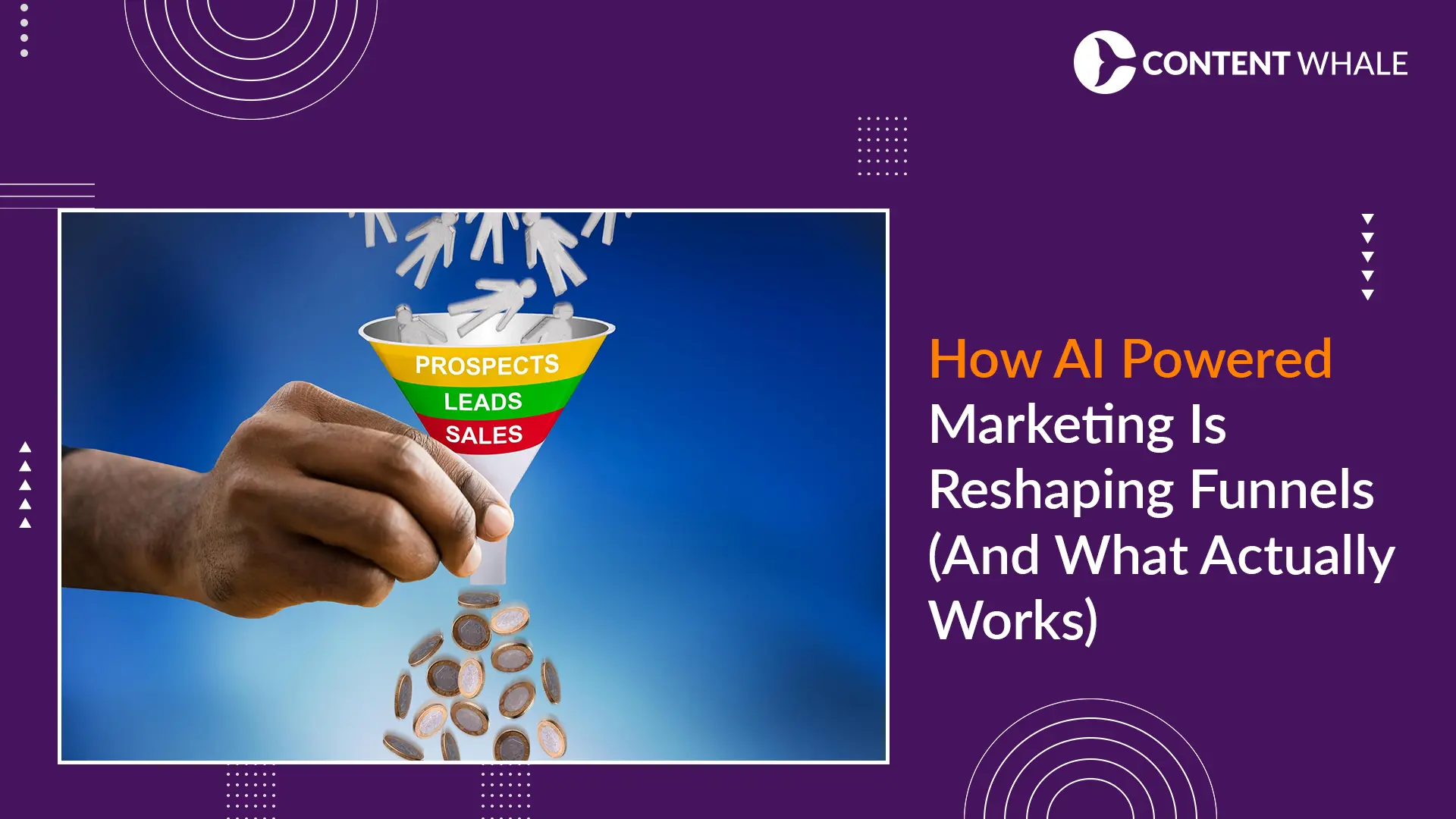Quick Summary
Learn how to optimize your WordPress site for better SEO with comprehensive strategies and essential tips. Discover the best seo plugins like Yoast SEO, Rank Math, and All in One SEO, which provide tools for keyword research, content optimization, and managing meta tags. Improve your site’s site speed, ensure mobile optimization, and use effective link-building techniques to enhance your site’s ranking and visibility. Engage with the WordPress community, leverage social media, and continually update your SEO practices for long-term success.
SEO is crucial for boosting the visibility and traffic of your WordPress site. Whether you’re a blogger, business owner, or developer, understanding how to optimize your site can make a significant difference. WordPress SEO focuses on improving your site’s ranking on search engines like Google, which can lead to more visitors and better engagement.
Several statistics underscore the importance of SEO for WordPress sites. Approximately 43% of all websites are built on WordPress, making it the most popular content management system globally. Additionally, organic search drives about 53.3% of all website traffic, emphasizing the need for effective SEO strategies. Consumers tend to favor organic results over paid ads, with 70-80% ignoring paid search results altogether.
Using the right SEO plugins and tools is essential for effective WordPress optimization. Plugins like Yoast SEO, All in One SEO, and Rank Math are widely used, with millions of installations each. These tools help you fine-tune various aspects of your site, from keyword research and meta tags to site speed and mobile optimization. By leveraging these plugins, you can ensure your content is well-optimized, making it easier for search engines to index and rank your pages.
In this guide, we’ll explore the best practices for WordPress SEO, including the top plugins and essential SEO tips for wordpress. You’ll learn how to perform content optimization, use alt text for images, and implement effective link-building strategies.
These steps will help you improve your site’s visibility and performance, ultimately leading to more organic traffic and a better user experience.
Understanding WordPress SEO

WordPress SEO involves optimizing your WordPress site to improve its visibility on search engines like Google. This process includes using SEO plugins, performing keyword research, and ensuring your site is optimized for speed and mobile use.
1. What is WordPress SEO?
WordPress SEO refers to the strategies and techniques used to make a WordPress website more search-engine friendly. This includes optimizing the content, structure, and various technical aspects of the site. The goal is to increase organic traffic by achieving higher rankings in search engine results pages (SERPs).
2. How WordPress Differs from Other Platforms
WordPress stands out because of its flexibility and the wide range of SEO tools available. Unlike other platforms, WordPress allows extensive customization through SEO plugins like Yoast SEO and All in One SEO, which provide detailed analysis and optimization suggestions.
This flexibility makes WordPress optimization more accessible and effective. For instance, while platforms like Wix and Squarespace offer simpler interfaces, they lack the depth of customisation and extensive plugin ecosystem that WordPress provides.
3. Basic SEO Settings in WordPress
To get started with WordPress SEO, you need to configure some basic settings:
- Permalinks: Set your permalinks to “Post Name” for cleaner, more descriptive URLs. This can be done in the WordPress dashboard under Settings > Permalinks.
- Visibility Settings: Ensure your site is visible to search engines. Go to Settings > Reading and make sure the option to “Discourage search engines from indexing this site” is unchecked.
- Meta Tags and Descriptions: Use plugins like Yoast SEO to add and optimize meta tags and descriptions. These elements help search engines understand the content of your pages.
- Alt Text for Images: Always include alt text for your images. This not only helps with accessibility but also improves your image SEO.
4. Additional Key Aspects
- Content Optimization: Create high-quality, relevant content that satisfies user intent. Use keyword research to identify terms your audience is searching for and incorporate these naturally into your content.
- Site Speed: A fast-loading site is critical for both user experience and SEO. Use tools like Google PageSpeed Insights to test and improve your site speed.
- Mobile Optimization: Ensure your site is responsive and works well on all devices. Mobile-friendly sites are favored by search engines and provide a better user experience.
- Link Building: Develop a strategy for acquiring high-quality backlinks. This can include guest blogging, partnerships, and engaging with the WordPress community.
These foundational elements of WordPress SEO are essential for creating a well-optimized site that can rank well and attract organic traffic. By configuring these settings and using the right SEO tools, you can significantly improve your site’s performance and visibility.
Essential SEO Plugins for WordPress

Using seo plugins is vital for enhancing your WordPress SEO efforts. These tools simplify the process of optimizing your site, providing features that help with keyword research, content optimization, and more. Here are some of the top SEO plugins you should consider.
1. Yoast SEO
Yoast SEO is one of the most popular seo plugins available, with over 5 million active installations. It offers a comprehensive suite of features designed to improve your site’s SEO. These include:
- Keyword Optimization: Helps you optimize your content for specific keywords.
- Meta Tags and Descriptions: Easily add and manage meta tags and descriptions.
- Readability Check: Ensures your content is easy to read and user-friendly.
- XML Sitemaps: Automatically generates XML sitemaps to improve site indexing.
2. All in One SEO (AIOSEO)
All in One SEO is another powerful plugin with over 3 million active installations. It is user-friendly and packed with features that make wp optimization straightforward. Key features include:
- SEO Audit: Provides an SEO audit checklist to help you identify and fix issues.
- Schema Markup: Supports rich snippets, which can improve your click-through rates.
- Social Media Integration: Optimizes your site for social media sharing.
- Alt Text for Images: Automatically adds alt text to images to improve image SEO.
3. Rank Math
Rank Math is a relatively new player but has quickly gained popularity due to its advanced features and ease of use. It integrates seamlessly with Google Search Console and offers a detailed SEO analysis. Notable features include:
- Advanced SEO Analysis: Provides detailed SEO analysis and actionable insights.
- Keyword Optimization: Supports multiple focus keywords, which is great for thorough content optimization.
- XML Sitemaps: Automatically creates and submits XML sitemaps.
- Internal Linking Suggestions: Recommends internal links to improve link building and site navigation.
4. SEOPress
SEOPress is a robust and fully white-labeled SEO plugin. It is designed for users who want a clean, ad-free plugin that still packs a punch. Key features include:
- Content Analysis: Helps you improve your content with detailed SEO analysis.
- Advanced Redirects: Easily manage 301 and 404 redirects to maintain SEO health.
- Google Analytics Integration: Tracks and reports your site’s performance.
- Social Media Integration: Enhances social media sharing and appearance.
5. Squirrly SEO
Squirrly SEO is an excellent tool for those who need guidance through the SEO process. It provides real-time advice and checks as you write your content. Features include:
- Real-Time SEO Suggestions: Offers live recommendations to improve SEO as you write.
- Competitor Analysis: Provides insights into what your competitors are doing.
- Content Optimization: Helps with keyword research and content optimization.
- SEO Audits: Conducts regular audits to identify and fix SEO issues.
Using these seo plugins can significantly enhance your WordPress SEO efforts. They offer a range of features that simplify keyword research, optimize meta tags, improve site speed, ensure mobile optimization, and facilitate effective link building.
By leveraging these tools, you can ensure your WordPress site is well-optimized and ranks higher on search engine results pages.
On-Page SEO Tips for WordPress

Improving your WordPress SEO involves more than just installing plugins. Effective on-page SEO practices ensure that each page of your site is optimized to rank well on search engines. Here are some essential seo tips for wordpress to help you get started.
1. Importance of Keyword Research
Keyword research is the foundation of any successful SEO strategy. It helps you understand what terms your target audience is searching for and how competitive those terms are.
Use SEO tools like Google Keyword Planner, SEMrush, or Ahrefs to find relevant keywords for your content. Incorporate these keywords naturally into your titles, headings, and body text to improve your search engine rankings.
2. Optimizing Meta Tags and Descriptions
Meta tags and descriptions are critical for providing search engines with information about your content. Use plugins like Yoast SEO or All in One SEO to add and optimize these tags easily.
Ensure that each page has a unique title tag and meta description that includes your target keywords. This practice not only helps with SEO but also improves click-through rates from search engine results pages (SERPs).
3. Using Alt Text for Images
Alt text for images is essential for both accessibility and SEO. Descriptive alt text helps search engines understand the content of your images, which can improve your rankings in image search results. Always include relevant keywords in your alt text without overstuffing, ensuring it accurately describes the image.
4. Creating High-Quality, SEO-Friendly Content
High-quality content is crucial for WordPress SEO. Focus on creating content that is informative, engaging, and valuable to your audience. Use your target keywords naturally throughout your content, ensuring it flows well and reads naturally.
Additionally, break up your content with headings, bullet points, and images to make it more readable and engaging.
5. Internal Linking Strategies
Internal linking is an effective way to improve your site’s SEO and user experience. By linking to other relevant pages on your site, you help search engines understand the structure of your site and distribute page authority.
Use plugins like Rank Math to get suggestions for internal links and ensure you have a logical linking structure that enhances link building efforts.
6. Improving Site Speed and Performance
Site speed is a critical factor for SEO and user experience. Slow-loading sites can negatively impact your rankings and lead to higher bounce rates. Use tools like Google PageSpeed Insights to test your site’s performance and identify areas for improvement.
To enhance your site’s speed, optimize images, leverage browser caching, and use a content delivery network (CDN).
7. Mobile Optimization
With the increasing number of mobile users, mobile optimization is more important than ever. Ensure your WordPress site is responsive and provides a seamless experience on all devices. Use mobile-friendly themes and plugins, and test your site’s mobile performance with tools like Google’s Mobile-Friendly Test.
By following these SEO tips for wordpress, you can improve your site’s visibility, drive more organic traffic, and enhance the overall user experience. Implementing these on-page SEO strategies will help ensure your WordPress site is well-optimized and ranks higher in search engine results.
Off-Page SEO Strategies

Improving your WordPress SEO involves more than just optimizing your site internally. Off-page SEO strategies are crucial for building your site’s authority and driving organic traffic. Here are some essential off-page seo tips for wordpress.
1. Importance of Backlinks and How to Acquire Them
Backlinks are links from other websites to your own. They are a significant ranking factor for search engines, indicating that your site is a trusted and valuable resource. Here are some strategies to acquire high-quality backlinks:
- Guest Blogging: Write guest posts for reputable blogs in your niche. This helps you gain exposure and build backlinks to your site.
- Content Promotion: Share your content on social media and online communities to attract links. High-quality, shareable content can naturally attract backlinks.
- Outreach: Reach out to bloggers, influencers, and industry experts to inform them about your content. Personalized outreach can help you build relationships and earn backlinks.
2. Social Media Integration and Its Impact on SEO
Integrating social media into your SEO strategy can boost your site’s visibility and drive traffic. Here’s how to leverage social media for WordPress SEO:
- Share Content Regularly: Post your blog articles, infographics, and updates on social media platforms like Facebook, Twitter, and LinkedIn. This increases your content’s reach and potential for backlinks.
- Engage with Your Audience: Respond to comments, participate in discussions, and engage with followers. This can enhance your online presence and foster a community around your brand.
- Social Sharing Plugins: Use plugins like Social Warfare or Monarch to add social sharing buttons to your site. This makes it easy for visitors to share your content, increasing its visibility.
3. Engaging with the WordPress Community for Link-Building Opportunities
Being an active member of the WordPress community can open up numerous link-building opportunities. Here’s how to get involved:
- Participate in WordPress Forums and Groups: Join discussions on platforms like WordPress.org forums, Reddit, and Facebook groups. Share your expertise, answer questions, and link to your relevant content when appropriate.
- Collaborate with Other Bloggers: Partner with other WordPress bloggers for collaborative projects, such as co-writing articles or hosting webinars. This can help you gain backlinks and expand your network.
- Contribute to Open Source Projects: Get involved in WordPress development or contribute to plugins and themes. This can lead to backlinks from reputable WordPress sites and increase your visibility in the community.
4. Leveraging SEO Tools for Off-Page SEO
Using SEO tools can help you monitor and improve your off-page SEO efforts. Here are some tools to consider:
- Ahrefs: Provides comprehensive backlink analysis, keyword research, and content optimization features.
- SEMrush: Offers insights into competitor backlinks, keyword rankings, and site audits.
- Moz: Tracks your site’s domain authority and backlinks, providing actionable SEO tips.
Implementing these off-page seo tips for wordpress can significantly enhance your site’s authority and search engine rankings.
Focusing on link building, social media integration, and community engagement can drive more organic traffic and establish your site as a trusted resource.
Technical SEO for WordPress

Optimizing the technical aspects of your WordPress site is essential for achieving better rankings and providing a smoother user experience. Here are some key areas to focus on for effective WordPress SEO.
1. Improving Site Speed and Performance
Site speed is crucial for both SEO and user experience. A slow-loading site can lead to higher bounce rates and lower search engine rankings. Here are some seo tips for wordpress to improve site speed:
- Optimize Images: Use plugins like Smush or ShortPixel to compress and optimize your images without sacrificing quality. This reduces the load time of your pages.
- Caching: Implement caching with plugins like W3 Total Cache or WP Super Cache. Caching stores a version of your site so it loads faster for returning visitors.
- Content Delivery Network (CDN): Use a CDN like Cloudflare to deliver your site’s content from servers closest to your users, reducing latency and improving load times.
2. Mobile Optimization and Responsive Design
Ensuring your site is mobile-friendly is crucial, as a significant portion of web traffic comes from mobile devices. Google also prioritizes mobile-friendly sites in its search rankings. Here are some wp optimization tips for mobile:
- Responsive Themes: Choose a responsive theme that automatically adjusts to different screen sizes. Many modern WordPress themes are designed with mobile optimization in mind.
- Mobile-Friendly Plugins: Use plugins like WPtouch to create a mobile version of your site if your theme isn’t fully responsive.
- Test Your Site: Use Google’s Mobile-Friendly Test tool to check how your site performs on mobile devices and make necessary adjustments.
3. Setting Up XML Sitemaps and Submitting to Search Engines
XML sitemaps help search engines understand the structure of your site and find all your pages. Here’s how to set them up:
- Using SEO Plugins: Plugins like Yoast SEO and All in One SEO automatically generate XML sitemaps for your site. Ensure this feature is enabled in the plugin settings.
- Submitting Sitemaps: Submit your sitemap to Google Search Console and Bing Webmaster Tools to help search engines crawl and index your site more efficiently.
4. Securing Your WordPress Site
Website security is vital for maintaining trust and avoiding penalties from search engines. Secure your site with these steps:
- SSL Certificates: An SSL certificate encrypts data between your site and its visitors, providing a secure connection. Many hosting providers offer free SSL certificates, or you can use plugins like Really Simple SSL to set it up.
- Security Plugins: Use security plugins like Wordfence or Sucuri to protect your site from malware and attacks. These plugins offer features like firewall protection, malware scanning, and login security.
- Regular Updates: Keep your WordPress core, themes, and plugins up to date to protect against vulnerabilities. Regular updates ensure you have the latest security patches.
5. Managing Crawl Errors and Broken Links
Crawl errors and broken links can hinder search engines from indexing your site correctly. Here’s how to manage them:
- Google Search Console: Use this tool to identify and fix crawl errors. The Coverage report will show you which pages are not indexed and why.
- Broken Link Checkers: Plugins like Broken Link Checker can help you find and fix broken links on your site, improving both SEO and user experience.
Implementing these technical seo tools and strategies will enhance your WordPress SEO efforts, improving your site’s performance, security, and visibility on search engines.
Conclusion

Improving your WordPress SEO requires a blend of on-page, technical, and off-page strategies. Key practices include content optimization, effective keyword research, and optimizing meta tags and alt text for images. Implementing internal linking strategies and ensuring mobile optimization are also crucial for enhancing user experience and search engine visibility.
On the technical side, improving site speed, setting up XML sitemaps, securing your site with SSL certificates, and fixing crawl errors and broken links are vital steps that make your site more efficient and easier for search engines to index. Off-page strategies such as building high-quality backlinks, integrating social media, and engaging with the WordPress community can further boost your site’s authority and drive more organic traffic.
Utilizing the right seo plugins and seo tools can simplify these tasks and enhance your optimisation efforts. Plugins like Yoast SEO, Rank Math, and All in One SEO provide essential support in managing and improving your site’s SEO.
Keeping up with the latest seo tips for wordpress and regularly updating your knowledge will help keep your site competitive in the ever-changing SEO landscape.
Remember, SEO is an ongoing process. Regularly monitor your site’s performance, stay informed about the latest trends, and make necessary adjustments. Conducting regular audits, updating content, and maintaining active engagement with the SEO community is crucial for sustaining your site’s ranking and achieving long-term success.
By diligently applying these strategies and leveraging the right tools, you can significantly improve your WordPress SEO, enhance your site’s visibility, and attract more organic traffic.
FAQs
What is the best SEO plugin for WordPress?
Choosing the best seo plugins for WordPress SEO depends on your specific needs and preferences. Yoast SEO is a popular choice due to its comprehensive features, including keyword research, meta tags optimization, and readability analysis.
Rank Math is another excellent plugin, known for its user-friendly interface and advanced SEO features. All in One SEO Pack is also highly recommended for its robust functionalities and ease of use.
How can I improve my WordPress site’s loading speed?
Improving site speed is crucial for both SEO and user experience. Use caching plugins like W3 Total Cache or WP Super Cache to reduce load times. Optimize your images with plugins such as Smush or ShortPixel to compress image files without losing quality.
Consider using a Content Delivery Network (CDN) like Cloudflare to deliver your content from servers closest to your users, which can significantly enhance load times.
What are the essential SEO settings for a new WordPress site?
Setting up your new WordPress site for SEO involves several key steps. First, configure your permalinks to use the “Post Name” structure for clean and descriptive URLs. Install and activate a reliable SEO plugin like Yoast SEO or Rank Math to help with content optimization and meta tags management.
Ensure your site is visible to search engines by checking the visibility settings under Settings > Reading and unchecking the “Discourage search engines from indexing this site” option. Finally, set up an XML sitemap using your SEO plugin and submit it to Google Search Console.
How do I perform keyword research for WordPress?
Keyword research is essential for optimizing your WordPress site. Use tools like Google Keyword Planner, Ahrefs, or SEMrush to identify relevant keywords for your niche.
Look for keywords with a good balance of search volume and competition. Once you have a list of target keywords, incorporate them naturally into your content, including headings, meta tags, and alt text for images. Regularly update your keyword strategy based on performance and search trends.
Can social media impact my WordPress SEO?
Yes, social media can significantly impact your WordPress SEO. Sharing your content on platforms like Facebook, Twitter, and LinkedIn can increase its visibility and drive traffic to your site. Social signals, such as likes, shares, and comments, can indirectly influence your search engine rankings by boosting your content’s visibility and engagement.
Integrating social sharing buttons on your site using plugins like Social Warfare or Monarch makes it easier for visitors to share your content, enhancing your overall SEO strategy.





